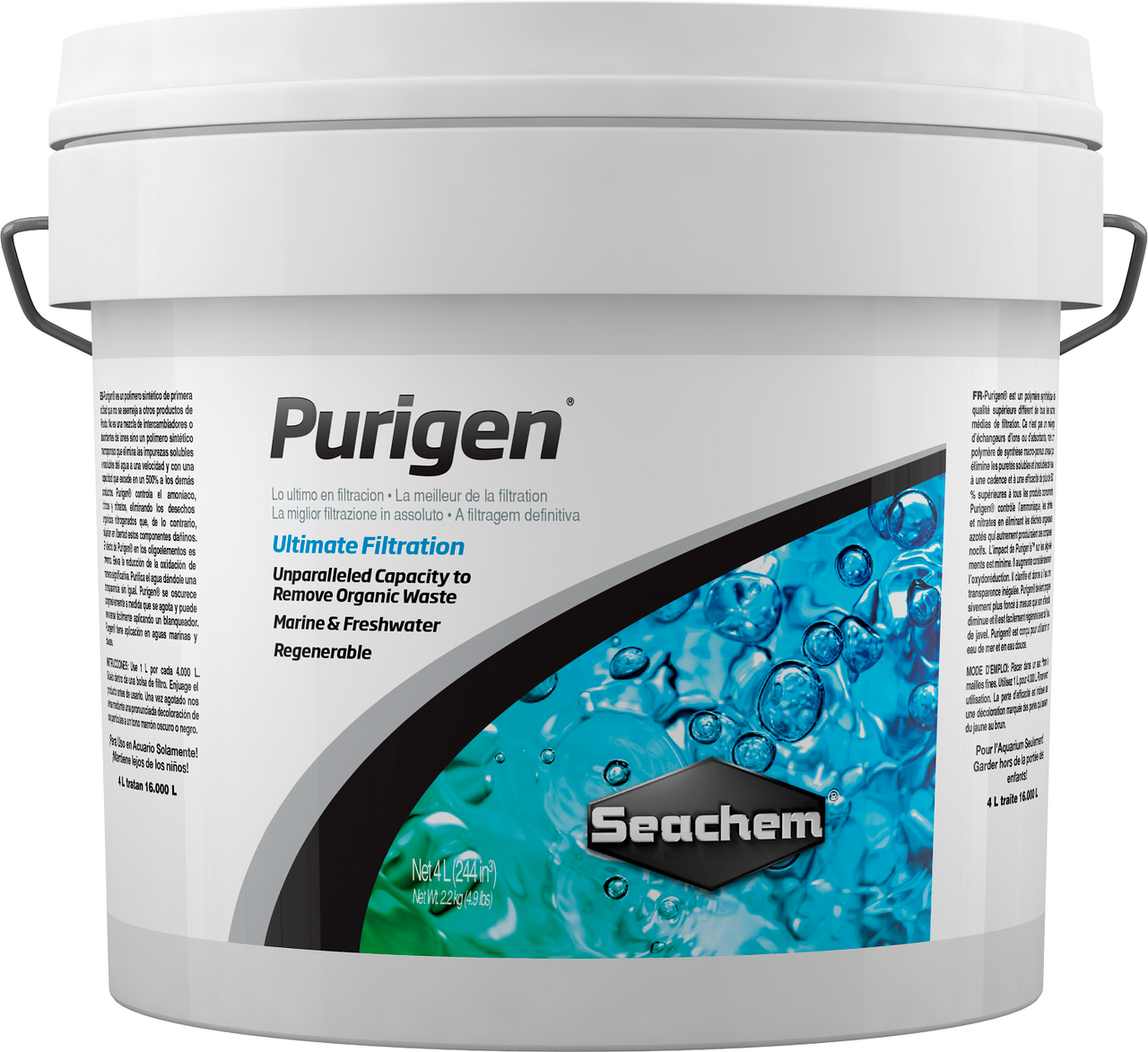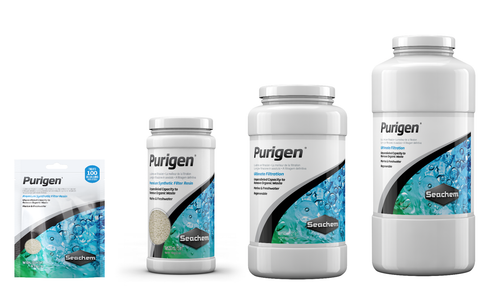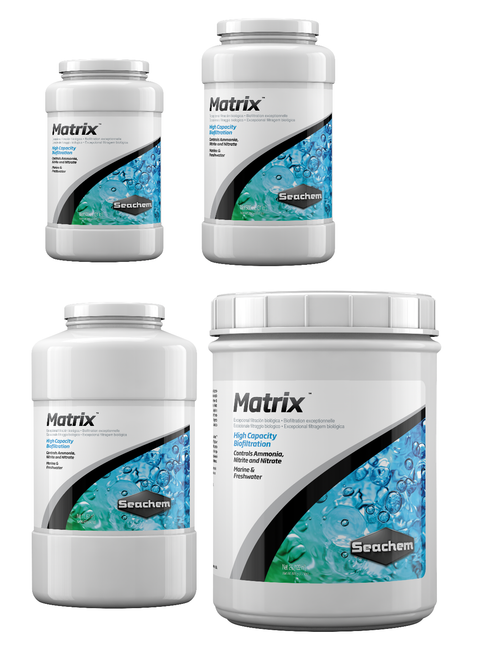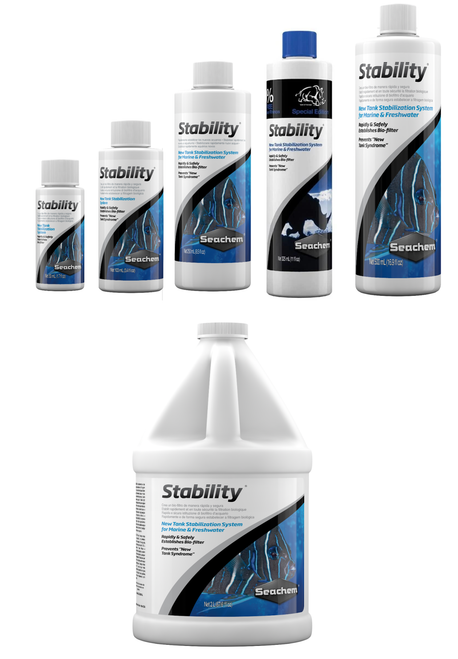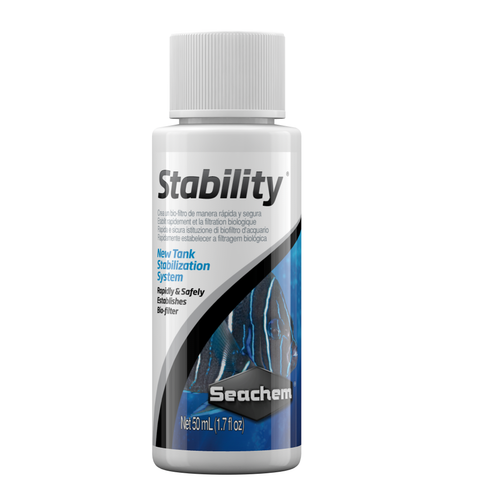Product Description
Seachem Purigen
Purigen® is a premium synthetic adsorbent that is unlike any other filtration product. It is not a mixture of ion exchangers or adsorbents, but a unique macro-porous synthetic polymer that removes soluble and insoluble impurities from water at a rate and capacity that exceeds all others by over 500%. Purigen® controls ammonia, nitrites and nitrates by removing nitrogenous organic waste that would otherwise release these harmful compounds. Purigen'sTM impact on trace elements is minimal. It significantly raises redox. It polishes water to unparalleled clarity. Purigen® darkens progressively as it exhausts, and is easily renewed by treating with bleach. Purigen® is designed for both marine and freshwater use.
Directions
Rinse before use. Use in a fine mesh (180 micron or less) filter bag such as Seachem’s The Bag™. For best results, Purigen® should be placed so as to maximize the flow of water through it. It may be used in a canister filter, media chamber, box filter, or any high flow area of a trickle filter. Each 250 mL treats up to 1,000 L (250 US gallons) for up to six months. Exhaustion is indicated by a pronounced discoloration of the beads to dark brown or black.
Regeneration
Soak in a 1:1 bleach:water solution for 24 hours in a non-metallic container in a well ventilated area and away from children. Use regular 8.25% hypochlorite household bleach (non-scented, no dyes, do not use a splash-less bleach). Rinse well, then soak for 8 hours with a solution containing 4 tablespoons of Prime®, or equivalent dechlorinator per cup of water. Rinse well. For freshwater use, soak for 4 hours with a solution containing 2 tablespoons of buffer per cup of water (Discus Buffer®, Neutral Regulator®). Original color and full activity should now be restored and Purigen® is ready for reuse. Caution: some slime coat products may permanently foul Purigen® and render regeneration difficult. Do not reuse if odor of bleach/chlorine is detectable. In case of doubt, soak beads in small quantity of water and test for residual chlorine with a chlorine test kit.







